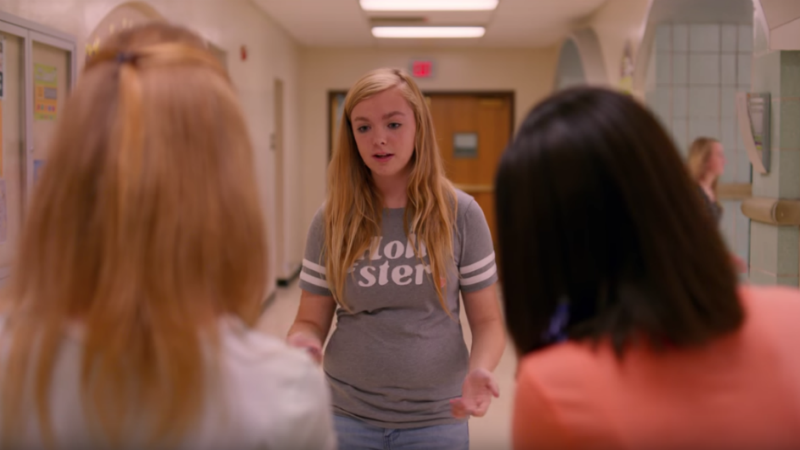A reflection of a face in a pornographic video reflects in the eye at the beginning of directors, Sophie Compton and Reuben Hamlyn’s unsettling documentary, Another Body. The face is of the film’s subject, Taylor. It doesn’t feel like an appropriate adjective to describe the film, reductive more than enhancing its importance, and the experience it offers audiences. It’s an arresting image, and the first in a film whose visual aesthetic of jarring video diaries, computer screen shots and animation, evokes the feeling of the horror that has been thrust upon the many victims of this new breed of cowardly online abuse.
The movie explores the personal story of engineering college student Taylor, who discovers her identity has been used for deepfake pornography. Sharing her personal story, there are other women from her college whose identities have been stolen, their faces placed onto pornographic content and uploaded to mainstream sites. Taylor connects with other victims and outlines her experience with law enforcement. Through the striking aesthetic that feels as though it has one foot in reality, the other in the digital space, the directors reconstruct Taylor’s pursuit of the person responsible for appropriating her image, and the image of other women for nonconsensual pornography.
It feels relevant to reference David Fincher and Aaron Sorkin’s The Social Network (2010), specifically how the social media giant, Facebook, was born of a frustrated and angry man’s intent to dehumanise women.
The deepfake videos are made by manipulating AI technology, using images shared or posted by the person on their social media channels. Compton and Hamlyn use their documentary to discuss social media’s history of being weaponised against women, direct and indirectly. What we’re witnessing in this age of digital appropriation of identity, is an escalation of misogyny. While we talk about progress towards treating women with equality, dignity and respect, that 90% of deepfakes are nonconsensual pornography of women, suggests a seething and thriving hostility towards women. This has been empowered by a reactive legal system, that has been reluctant and slow to respond.
Another Body is vitally important because it’s at the vanguard of pushing to create a conversation about deepfake pornography. Victims will encounter hostility when they try to speak out, and the film presents glimpses into this toxic indifference, void of either empathy or sympathy.
Taylor tells us that’s not her real name and an actor’s face has been deepfaked over her own. It’s the only way she could feel safe to tell her story. It gives us an insight into the sophistication of deepfake technology, and despite knowing it’s the face of an actor, our mind is tricked into thinking otherwise. It speaks about the authenticity of the technology and the seamlessness by which a person’s identity can be appropriated.
Compton and Hamlyn effectively take us inside the experience of their subject, first by how a young person striding towards a career in engineering is abruptly halted by the shocking revelation. Then, they allow the film to empower Taylor and her friend Julia, whose identity is also protected, to speak about their experiences. Taylor talks about the anonymity of the person behind the deepfakes and how not knowing the reason why, leaves victims not able to feel safe anywhere. She also discusses how her obsessive-compulsive disorder, anxiety and being a people pleaser, escalate the trauma. From behind a deepfaked face and using a pseudonym, she intimately opens up about her experience and the ways in which it has impacted her. If her online assailant has dehumanised her, speaking up humanises her, and the many victims of deepfake pornography.
Another Body is part of a wider and necessary conversation. There should be a call to action to fight the weaponisation of social media and technology against women. If we’re serious about equality for women, then it’s imperative that women shouldn’t have to live in fear in our digital future. The history of women has been one of dehumanisation, fear and oppression, and the inability to legislate technology risks a cyclical experience, especially when the film’s closing text tells us: “Deepfakes are doubling every six months. Researchers predict there will be over 5.2 million in 2024. 90% are nonconsensual porn of women.”
Another Body shows at the 31st Raindance Film Festival, and also at the Science360 section of the Tallinn Black Nights Film Festival. In cinemas on Friday, November 24th.












